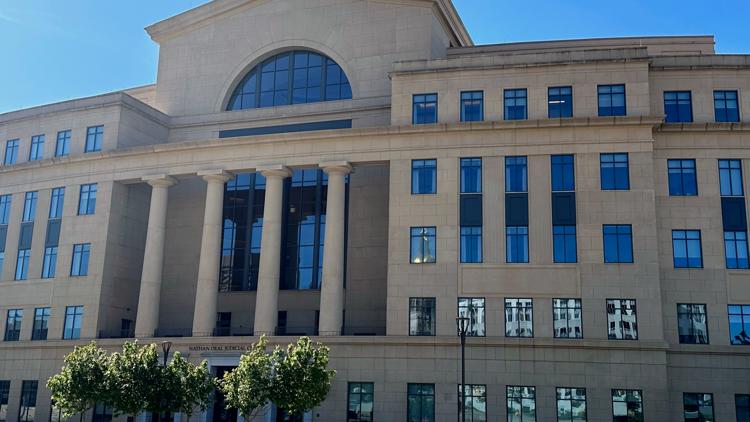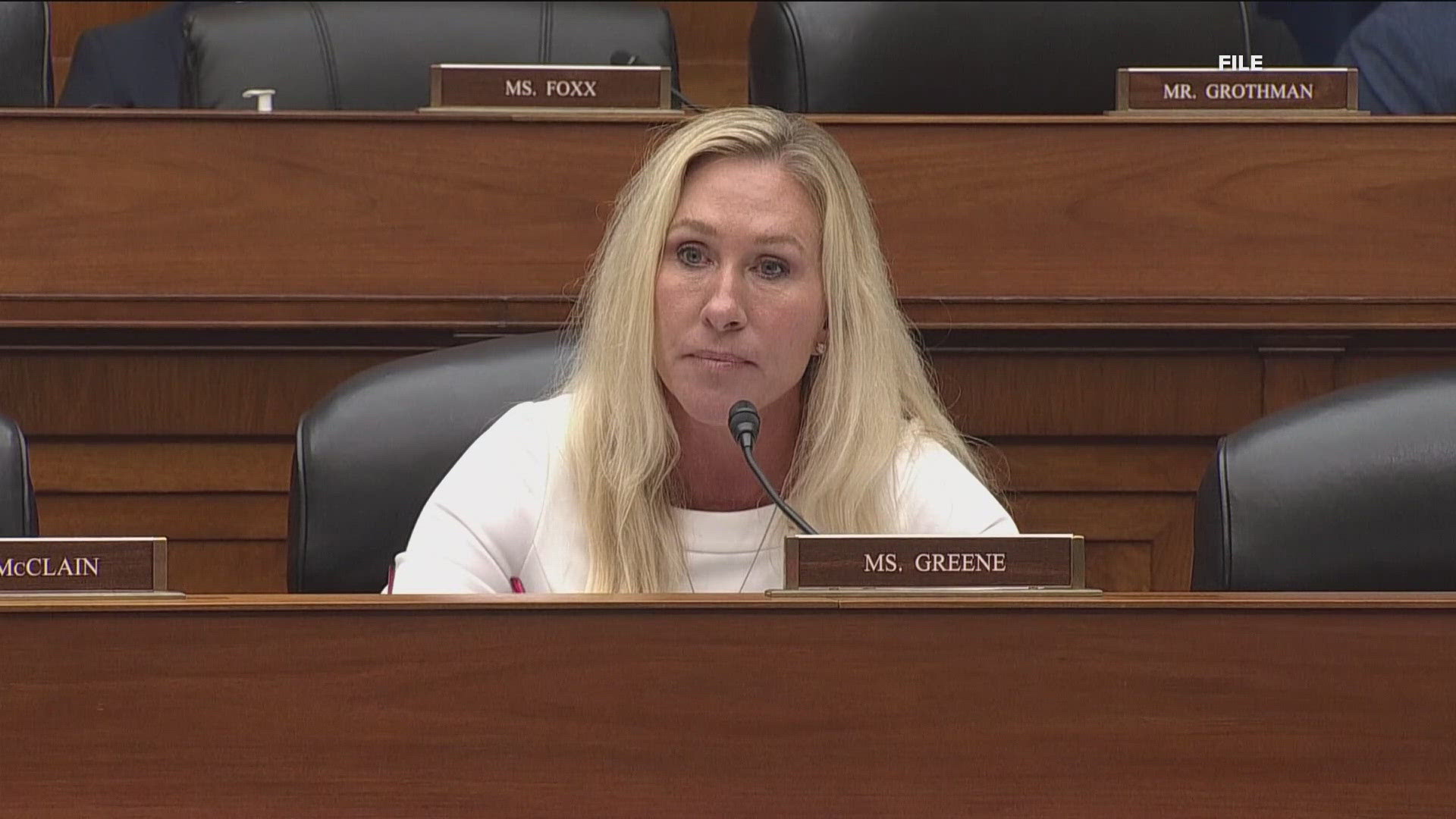ATLANTA — The Georgia Supreme Court has affirmed a Fulton County trial court's decision to dismiss a lawsuit that challenged the constitutionality of a statute that criminalizes conduct likely to disrupt the official business of the Georgia General Assembly.
The lawsuit was filed by former state Sen. Nikema Williams -- now a member of the United States House of Representatives -- along with 14 other Georgia residents who were arrested for protesting outside the State Capitol's rotunda for how the elections were handled in the state in 2018 and by state Rep. Park Cannon, who was arrested in 2021 for knocking on the door to Gov. Kemp's office as he was signing a controversial election bill into law.
The lawsuit, filed against the Georgia Department of Public Safety officers involved in the arrests, sought declaratory and injunctive relief that would eliminate the statute. It alleged that the statute violated the free-speech protections outlined in the Georgia Constitution.
Back in May, attorneys for both lawmakers appeared before the Georgia Supreme Court justices to argue their case.
“We are challenging a statute that was, as written, would prevent speech at the Capitol. If a Capitol police officer happened to think that it was disruptive, even though it did not actually disrupt a meeting or anything, and even though the person didn't intend it. And we think that the State Capitol is the heart of state government, where free speech should be at its maximum. And people shouldn't be risking jail—our clients were strip searched and jailed and charges dismissed—for simply speaking their mind at the State Capitol."


However, Principal Deputy Solicitor General Ross Bergethon said that context matters in this case.
“The Capitol building is not a public park. It's the seat of two branches of government, and it's the workplace of hundreds of state employees. The state's not obligated to open the Capitol at all. The U.S. Capitol is not open in the same way, for instance, but it has, and I think we'd all agree that's a good thing. The disruption statute simply reflects the nature of the building.”
Bergethon added that it's not about limiting anyone's right to expression.
“It’s about making sure that the people working in the Capitol or attending a lawful assemblage there are free to engage in their own exchange of ideas or perform their work without undue interference from others," Bergethon said.
Williams, Cannon and the other appellants also alleged that the statute was unconstitutional because they claimed they did not intend to disrupt any session of the Georgia General Assembly and did not disrupt any session. Cannon claimed that the statute was unconstitutional in regard to her actions due to it being "noncommunicative conduct."
The trial court in Fulton County rejected the appellants' challenges and dismissed their complaint in part for "failure to state a claim." The trial court also dismissed Cannon's challenge.
The Supreme Court upheld the trial court's decision on Thursday.



